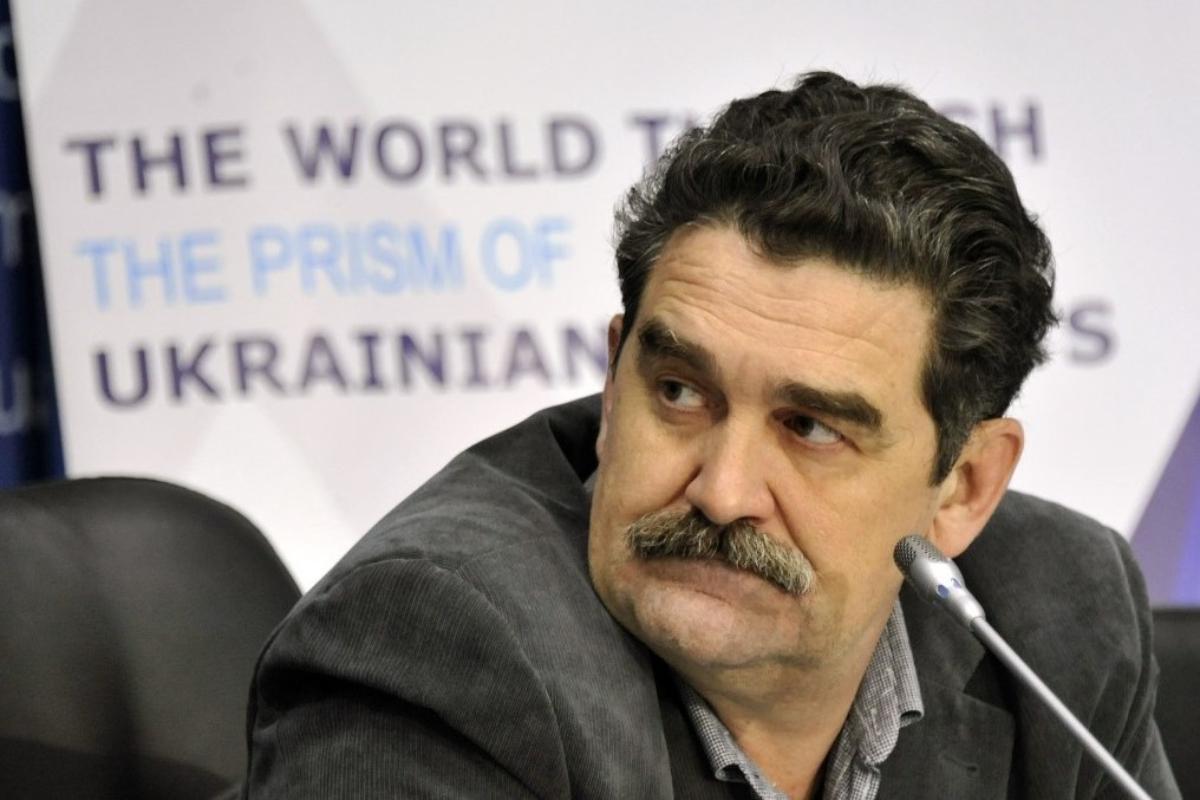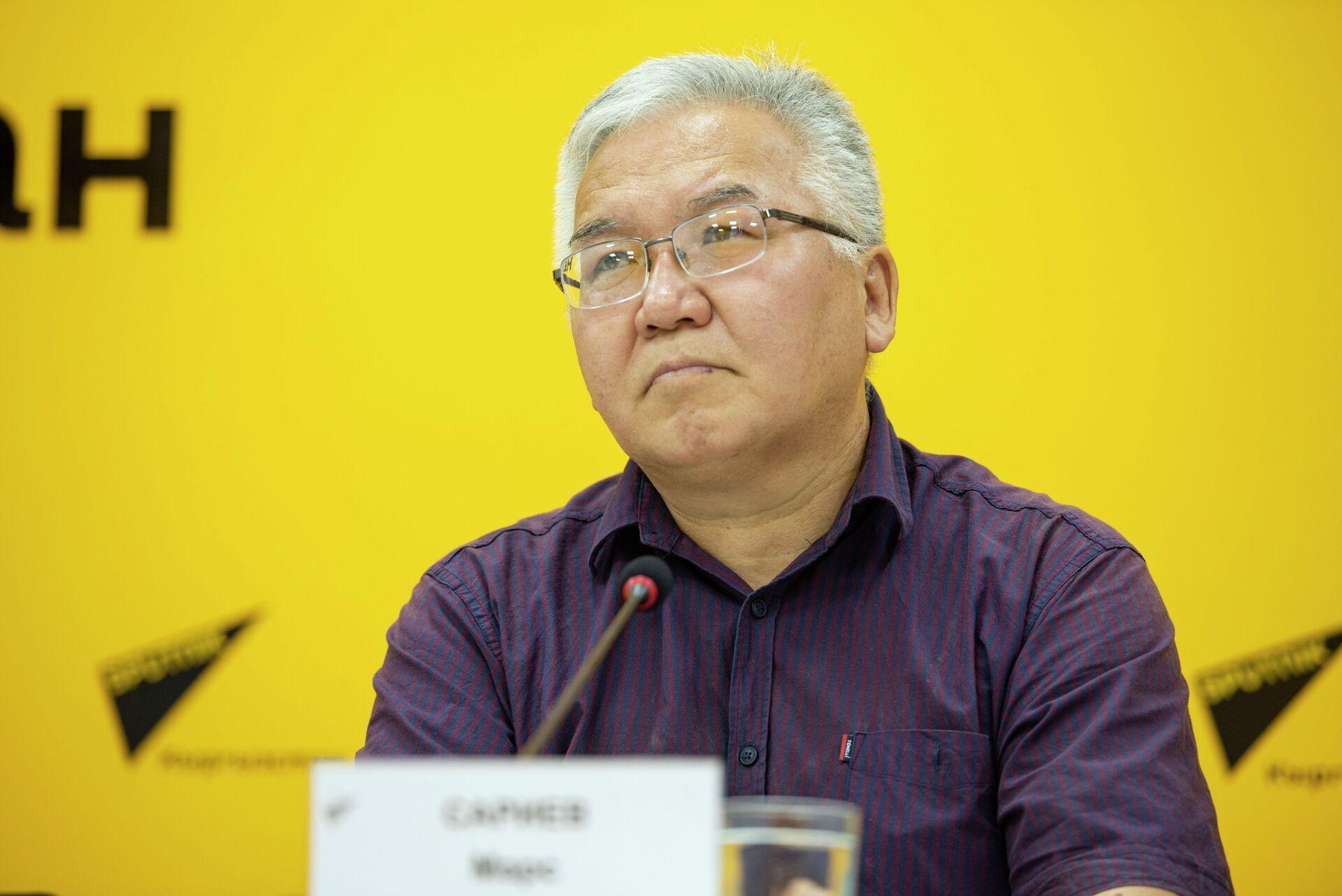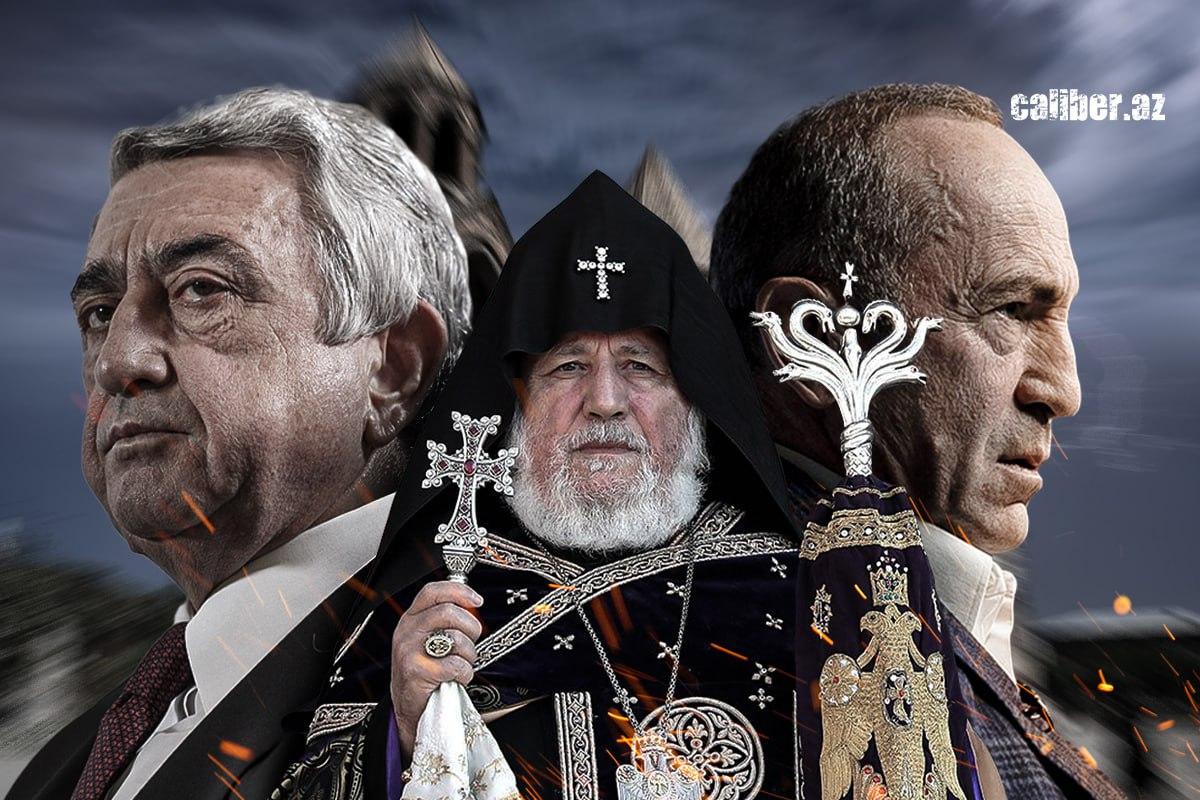Armenia's choice: Stability or becoming a pawn for global actors? Experts see foreign hands in anti-gov't protests
Attempts to organise a violent change of power continue unabated in Armenia. The same odious Archbishop Bagrat Galstanyan, the church, and the Karabakh clan supporting him are at the forefront. Recently, participants of the movement against "unilateral concessions to Azerbaijan" gathered in front of the Armenian government building, where a regular session of the Cabinet headed by Prime Minister Pashinyan was held. Police officers were forced in 3-4 rows to block the entrance to the street where the service entrance to the government building is located. The undead former Karabakh separatists are also on the side of the speakers. “We supported, we joined the movement “In the Name of the Motherland,” former “Secretary of the Artsakh Security Council” Vitaly Balasanyan told the media.
And Garnik Danielyan, an MP from Kocharyan's Armenia bloc, said that the most acceptable candidate for prime minister is the same Bagrat Galstanyan. "Bagrat Galstanyan said that the candidate should not be a member of any party or from the former ones. I perceive him as such a candidate. In order to bring the process to completion, all methods will be used: impeachment, popular pressure and other instruments. Almost all parliamentary and non-parliamentary parties are involved in the struggle. We had a meeting with Suren Surenyants' party (Democratic Alternative), Country for Life and Bright Armenia parties, Hayakve initiative, as well as Yezidi organisation," he noted.
Later, Galstanyan himself stated that the most powerful rally is planned in the coming days, which will result in some practical actions ("intense struggle") to overthrow the current government in Armenia. Until then, Galstanyan will hold a series of meetings with MPs, scientists, medics and organisations.
Is there a possibility or likelihood of dangerous repercussions? If these protests intensify, could this be an obstacle to the emerging peace process in the region?
So, to find answers to these questions, Caliber.Az consulted well-known foreign experts.

According to Ihor Semivolos, executive director of the Centre for Middle East Studies (Kyiv), representatives of religious institutions appeal to human emotions.
"In principle, this is quite understandable and fits their profile: existential fear, concern for their loved ones, eschatological experiences - all this forms an important part of any religious teaching. In times of change, the role of religion can hardly be overemphasised. But sometimes it happens that people's feelings are abused to achieve specific political goals. And they don't hide it. Like this time," says the expert.
However, the problem is that the time for throwing stones has passed and they haven't noticed, he adds.
"Collecting stones is a much harder process, but only after that the field can be sown. I hope that Catholicos of All Armenians Karekin II knows Ecclesiastes better than Bagrat Galstanyan and is aware of the responsibility for his choice," said the centre's director.

Kyrgyz political scientist and regional security expert Mars Sariyev recalled that it was the separatist movement of Armenians in Karabakh that was the trigger for the collapse of the Soviet Union when rallies for "independence" arose there.
"I think that, unfortunately, Armenians as a nation have always been used by global players. If we take the Vatican in particular, Armenia was artificially engineered to split the Turkic world. After all, the Turkic world stretches in a continuous strip from Turkey to China and Yakutia. The creation of Armenia also met the interests of Tsarist Russia. Armenians as a nation are a victim of external projection.
And now, I think, similar attempts are also being made, when we see that the Pashinyan government, in the interests of the Armenian people, wants to integrate the country into common projects with its neighbours, to turn Armenia into a transit state and not to confront countries like Türkiye and Azerbaijan, leading Armenia to prosperity. Because this reflects the interests of ordinary Armenians. And the main guarantors of such a path are Türkiye and Great Britain. The creation of the Zangezur corridor with access to Central Asia and China should ensure the stability of the Turkic belt. In principle, it suits China and Europe as well, because it connects them with additional communication," the analyst says.
However, he noted that this does not suit the counter-partners of this process from long ago. "In particular, the conceptual centre is the Vatican. And this creates competition, does not suit regional players such as Iran, Russia and even India. In this regard, two contours are already being built.
The development, the prosperity of the region on the one hand and an opposing project on the other, aimed at breaking this process, destabilising it, which I think the Vatican is behind. To some extent, this situation does not suit Iran either, but Tehran does not take such an active position in this process. There are traces of India and, strangely enough, Russia. In particular, Alexander Dugin, one of Russia's conceptual planners, stated that Armenian nationalists are more patriotic than Georgian nationalists. In other words, there are those in Russia who support such Armenians, who aim to break the Turkic world, to undermine the stability and prosperity of the South Caucasus and, consequently, Central Asia. Therefore, we need to look at the situation more broadly," the expert believes.

Now, as it seems to him, the "heavy artillery" has been brought in, i.e. religious leaders.
Unfortunately, they do not reflect the interests of the Armenian people, but lobby the views of the foreign diaspora of Armenians concentrated in France and the United States. These religious authorities, however unfortunate, oppose the ordinary Armenian people, who are interested in stability. The Diaspora is not interested in a normal Armenia, it is captive to the mythologeme of a "great Armenia" that has been built for decades, and it is ready even to destroy the real Armenia along the way. Practically all these forces cannot be called patriots of their homeland. Their interests coincide with the views of those Western countries where they are based. Therefore, I think we cannot look at what is happening in Armenia now as its internal affair. The hand of global players can be seen here, and the Armenian people, as always, are just a tool, a resource, a material for the implementation of their goals to destabilise the Caucasus using the principle that has been in force for centuries, called "divide and conquer". I think the people of Armenia should take a broader look at the situation and realise that their country is more of a puppet in this game, and the 'playwrights' are behind the ocean, first of all," the Kyrgyz political scientist said.
But he still thinks that despite all destructive attempts to sway Armenia, it will not be possible to destabilise the South Caucasus.
"After all, external provocateurs attempted to provoke Azerbaijan into military clashes with Armenia more than once in recent years. But Baku has successfully resisted this. I hope that the Armenian people will be smart enough to realise their true national interests and make the right choice. Despite the fact that the religious hierarchs of Armenia have taken an unconstructive position, I think it will not be possible to make this country a trigger for the collapse of the South Caucasus. No matter what desperate attempts are made," Sariyev concluded.








